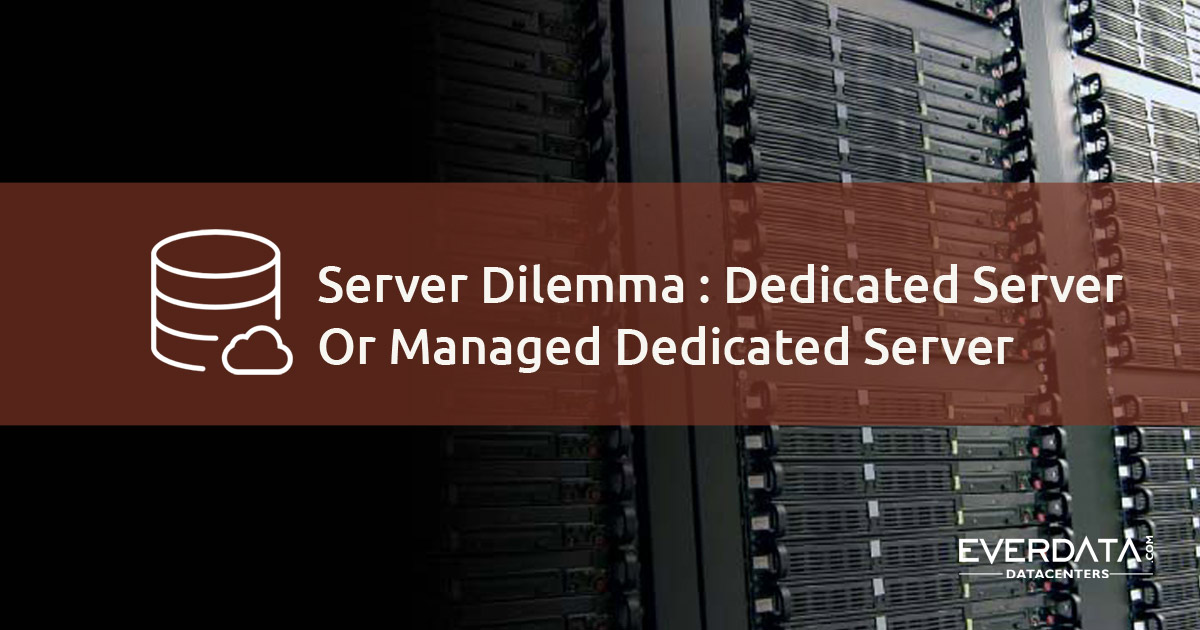
Submitted by admin on

While shared hosting plans are considered as the best plans for the entry level, you may need to upgrade to higher plans as your business grow. Businesses with really high requirements of dedicated resource can opt for dedicated hosting that guarantee you a specific set of exclusive resource for your website that are available to you all the time and can instantly be used during high demand situations this ensuring the best site performance. There are 2 types of dedicated server hosting: Dedicated sever hosting and managed dedicated server hosting. Let us see the difference between the 2 and the most ideal plan to choose for you.
The Difference Between Dedicated Server and Managed Dedicated Server
Some people might infer from the names that managed dedicated servers are entirely managed by the hosting company while the dedicated servers are to be managed solely by the client without any help or guidance. It is only partially true. The key benefit of managed dedicated severs is that the client does not have to bother about the complex technicalities of their server. All technicalities will be entirely overlooked by the hosting company for ensuring the most optimal experience. The clients can expect some limited assistance even if they opt for dedicated servers. But they would be directly overlooking the technical aspects including but not limited to installation, upgrading, managing server uptime and patches.
There are multiple factors to consider while choosing between a dedicated servers and managed dedicated servers. These factors include technical aspects, average traffic, website structure and overall complexity of your business model.
Which One is Ideal For You?
There are a few key questions to ask yourself in order to select the most ideal dedicated server for your use:
- Do you have the infrastructure, resources and dedicated IT team that excel at dedicated server management?
If the answer to the above question is yes then you may choose a dedicated server. However if the answer is no, then read on :
- In case you don’t have the team what is the expected budget you are willing to incur for outsourcing the management of technical aspects?
- How good are you at understanding the practical aspects of various technicalities associated with dedicated servers?
- Does your business size or its complexity allow you the required time or bandwidth to look after the technical management of your dedicated server?
- Do you have specific requirements for your website like handling fluctuating traffic or storing humongous data that you cannot manage on our own?
- Do you have the required infrastructure and resources to manage your dedicated serves without any hiccups?
- How important is the user experience for your website?
The answer to the above questions should shape your decision to choose between dedicated servers and managed dedicated server. If you are technically soon and have adequate time to manage day to day affair of dedicated server management, then you can go for dedicated server. If you lack technical expertise and time then it is better to opt for managed dedicated server.
Conclusion
You can choose between dedicated servers and managed dedicated sever depending upon your needs and budget availability. Managed dedicated server comes at a premium price and therefore you should ideally have a justifiable need for using it. For example, if you are running a gaming website then a little technical hiccup or lag in the speed can alter the user experience and over a period of time it can affect your business in a great way. However, if you run a supermarket and solely depend on physical transactions then a little lag in the speed or technical hiccups may not have such an adverse effect on the user experience.


Add new comment